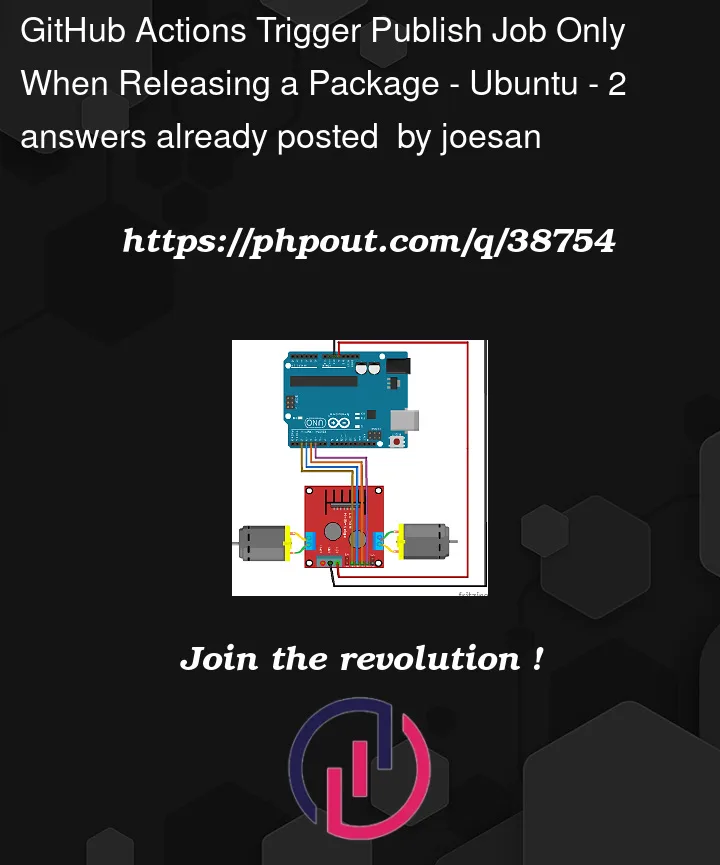I have a Scala based multi module project for which I’m having a GitHub Actions pipeline which contains two jobs, one for test and the other for publishing to GitHub packages. Here is my file:
name: Build my projects
on:
push:
paths-ignore:
- 'images/**'
- README.md
branches:
- master
tags:
- 'v*.*.*'
pull_request:
branches:
- master
release:
types: [ created ]
env:
GITHUB_TOKEN: ${{ secrets.GITHUB_TOKEN }}
jobs:
test:
runs-on: ubuntu-latest
steps:
- name: Checkout
- uses: actions/checkout@v2
- name: Cache ivy2
uses: actions/cache@v1
with:
path: ~/.ivy2/cache
key: ${{ runner.os }}-sbt-ivy-cache-${{ hashFiles('**/*.sbt') }}-${{ hashFiles('project/build.properties') }}
- name: SBT Test
run: sbt clean test
publish:
needs: test
steps:
- name: Checkout
- uses: actions/checkout@v2
- name: SBT Publish
run: sbt publish
I would need the following:
- Trigger the publish job only when I want to do a release, but how do I know that I want to do a release? Do I tag a release when I commit the changes? If I tag it, then how can I check if there is a tag so that I know that I have to run the publish job?




2
Answers
I just had to do this in the publish job:
So when there is a tag, the publish job knows that it has to run and publish the new package.
If you want to trigger a workflow "only when you want to do a release", one option is to manually launch the workflow.
This can be achieved with a specific workflow with following trigger
workflow_dispatch:Here I add an input value that has to be entered manually when launching the workflow. This is not mandatory though if you don’t need any input.
See also: https://github.blog/changelog/2020-07-06-github-actions-manual-triggers-with-workflow_dispatch/
Note that triggering the workflow when a tag is pushed is also a solution that makes sense. It’s really up to you.